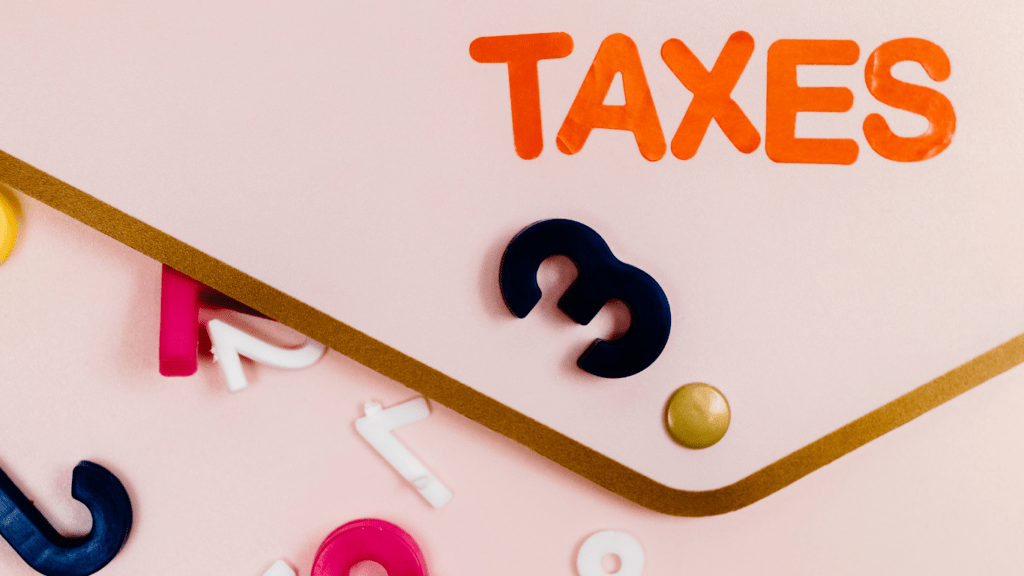Understanding NFTs and Their Tax Implications
NFTs, or non-fungible tokens, are unique digital assets representing ownership of a specific item or piece of content, like:
- artwork
- music
Unlike cryptocurrencies such as Bitcoin, each NFT has distinct properties that make it one-of-a-kind. This uniqueness creates complex tax implications for buying, selling, and trading NFTs.
Tax Classification of NFTs
The IRS hasn’t provided specific guidelines on NFTs, but they likely categorize NFTs under existing digital asset classifications. NFTs could be treated as property, similar to cryptocurrencies. This means any sale, trade, or minting could trigger a capital gains event.
Capital Gains and Losses
When you sell an NFT at a higher price than the purchase price, you incur a capital gain, subject to short-term or long-term capital gains tax depending on the holding period. Conversely, selling at a loss results in a capital loss, which can offset gains and reduce tax liability. For instance, selling an NFT held for over a year qualifies for a long-term capital gains tax rate, typically lower than the short-term rate applicable to assets held for less than a year.
Reporting Income from NFTs
Income from NFT sales and creations must be reported. For creators, minting and selling an NFT constitutes income, requiring reporting as ordinary income on tax returns. Collectors must also report gains derived from trading or selling NFTs. This income impacts the overall tax profile, and neglecting to report can lead to penalties.
NFT Transactions as Taxable Events
Each transaction involving NFTs, whether buying, selling, or trading, is a taxable event. For example, using cryptocurrency to purchase an NFT triggers a taxable event because converting the cryptocurrency involves recognizing any gain or loss from its initial purchase price. These events necessitate meticulous record-keeping of each transaction’s details to ensure accurate reporting.
Record-Keeping for NFT Activities
Maintaining precise records of each NFT transaction helps in accurate tax reporting. This includes noting the purchase price, sale price, date of transactions, and any associated costs.
Proper documentation eases the process of calculating gains or losses. Tools like accounting software or blockchain explorers can assist in tracking transactions effectively.
Understanding these aspects ensures you’re better equipped to handle NFTs’ tax implications responsibly, avoiding potential pitfalls.
Types of Transactions Involving NFTs
Various types of transactions involving NFTs exist, each with distinct tax implications.
Buying and Selling NFTs
Buying NFTs means acquiring a digital asset, often using cryptocurrencies like Ethereum. Each purchase transaction triggers a taxable event where the buyer might face capital gains tax if the used cryptocurrency appreciated from its initial acquisition.
Selling NFTs involves selling the digital asset to another party, generating either a capital gain or loss based on the difference between the purchase price and the sale price. It’s crucial to keep detailed records of each buying and selling transaction, including the date, price, and any associated fees.
Trading NFTs
Trading NFTs refers to swapping one digital collectible for another, often through peer-to-peer platforms. Like buying and selling, trading NFTs creates taxable events, as the IRS views trades as dispositions of property.
The fair market value of the received NFT compared to the cost basis of the traded NFT determines the capital gain or loss. Documenting the trade’s specifics, such as both NFTs’ values at the time of the transaction, ensures accurate tax reporting.
Minting NFTs
Minting NFTs involves creating a new digital collectible, typically through platforms like OpenSea or Rarible. When minting, the creator incurs costs, including potential gas fees for blockchain transactions.
Minting isn’t a taxable event itself, but selling the minted NFT generates taxable income based on the sale price minus any minting costs. Accurate records of minting expenses and subsequent sales are vital to calculate net gains correctly.
Every interaction with NFTs holds tax implications, making diligent record-keeping essential for efficient tax management.
Tax Treatment of NFTs
Understanding NFT tax treatment is crucial for accurate reporting and compliance.
Capital Gains Tax
Capital gains tax applies to profits from selling NFTs. When I sell an NFT, the difference between the sale price and purchase price determines the capital gain or loss. The IRS classifies NFTs as property, so short-term gains (assets held for less than a year) and long-term gains (assets held for more than a year) apply, with different tax rates for each.
Income Tax
Income tax is relevant for NFT creators. If I mint and sell an NFT, the revenue from the sale is taxable as ordinary income. For each sale or royalty received, detailed records are essential to report earnings accurately. The value of any received cryptocurrency also needs converting to USD at the time of transaction for correct income reporting.
Sales Tax
Sales tax on NFT transactions depends on state laws. Some states may require sales tax collection on digital goods, including NFTs. If I sell an NFT, I might need to collect and remit sales tax based on the buyer’s location. Keeping current on state-specific regulations helps in fulfilling tax obligations properly.
Calculating Taxes on NFTs

Understanding how to calculate taxes on NFTs (non-fungible tokens) helps in managing tax obligations. This section breaks down the key elements involved in NFT tax calculations.
Determining Fair Market Value
Determining the fair market value (FMV) of an NFT involves the exact sales price or the equivalent value of cryptocurrency exchanged. If I sell an NFT for 2 Ethereum (ETH) when 1 ETH equals $3,000, the FMV is $6,000. Always convert the cryptocurrency to USD on the transaction date.
Cost Basis and Holding Period
The cost basis of an NFT includes the purchase price and associated costs, such as transaction fees. If I buy an NFT for 1.5 ETH with a transaction fee of 0.1 ETH and 1 ETH is $2,500, the cost basis is $3,250. The holding period begins on the acquisition date and determines if the gain or loss is short-term (held for one year or less) or long-term (held for more than one year).
Tax Rates and Brackets
Tax rates depend on the holding period. Short-term gains are taxed as ordinary income, with rates ranging from 10% to 37% based on the income tax bracket. Long-term gains are typically taxed at reduced rates of 0%, 15%, or 20%, depending on the income level. If I hold an NFT for over a year and sell it at a profit, I benefit from lower tax rates.
Reporting NFT Transactions
Understanding how to report NFT transactions is crucial to ensure compliance with tax laws. This section outlines key aspects of reporting these transactions.
IRS Forms and Reporting Requirements
The IRS requires reporting NFT transactions on specific forms. Report NFT sales and trades on Form 8949, detailing each transaction. Summarize the totals on Schedule D, attaching it to your Form 1040. If you receive NFTs as income, report them as ordinary income on Form 1040, line 21. Cryptocurrency, used to buy NFTs, may need reporting on Form 8949 if it triggers a capital gain or loss.
Keeping Accurate Records
Maintaining detailed records of NFT transactions simplifies tax reporting. Keep records of purchase dates, types, and values at the transaction time. Document costs related to acquiring and maintaining NFTs. Maintain transaction records for at least six years to ensure accuracy if audited. Regularly update records to reflect any changes in NFT values.
Professional Tax Help
Handling NFT taxes can be complex, so consider professional tax help. A tax professional specializing in digital assets can offer guidance and ensure accurate IRS filings. Stay informed about evolving tax regulations affecting NFTs. Professional advice can mitigate errors and potential penalties for incorrect reporting.
Tips for Minimizing NFT Tax Liability
- Understand Tax Laws:
I research state, federal, and international tax laws related to NFTs, focusing on those relevant to my transactions. Knowledge of these laws helps me identify potential deductions and credits.
- Track Transactions:
I meticulously record every NFT transaction, including purchase date, sale date, transaction amount, and associated fees. Detailed records support accurate tax reporting and can uncover deductible expenses.
- Utilize Tax-Loss Harvesting:
To offset gains, I sell NFTs at a loss when feasible. This strategy reduces my overall taxable income for the year, minimizing my tax liability.
- Consider Long-Term Holding:
I aim to hold NFTs for over a year. Long-term capital gains rates are generally lower than short-term rates, which helps reduce my tax burden.
- Leverage Professional Help:
I consult with a tax advisor experienced in digital assets. A professional can offer personalized strategies, ensuring compliance and potential tax savings.
- Allocate Business Expenses:
If I create or trade NFTs as part of a business, I document related expenses. Deducting business expenses lowers my taxable income, optimizing my tax position.

 Ricky Morenolendez is a key contributor at The Digi Chain Exchange, recognized for his deep expertise in cryptocurrency and blockchain technology. With years of experience in analyzing market trends and providing actionable insights, Ricky has become a trusted voice in the crypto space. His work focuses on helping investors understand the nuances of digital assets, from Bitcoin to emerging altcoins. Ricky’s dedication to educating the community on market strategies and crypto developments has made him an invaluable asset to The Digi Chain Exchange team.
Ricky Morenolendez is a key contributor at The Digi Chain Exchange, recognized for his deep expertise in cryptocurrency and blockchain technology. With years of experience in analyzing market trends and providing actionable insights, Ricky has become a trusted voice in the crypto space. His work focuses on helping investors understand the nuances of digital assets, from Bitcoin to emerging altcoins. Ricky’s dedication to educating the community on market strategies and crypto developments has made him an invaluable asset to The Digi Chain Exchange team.

